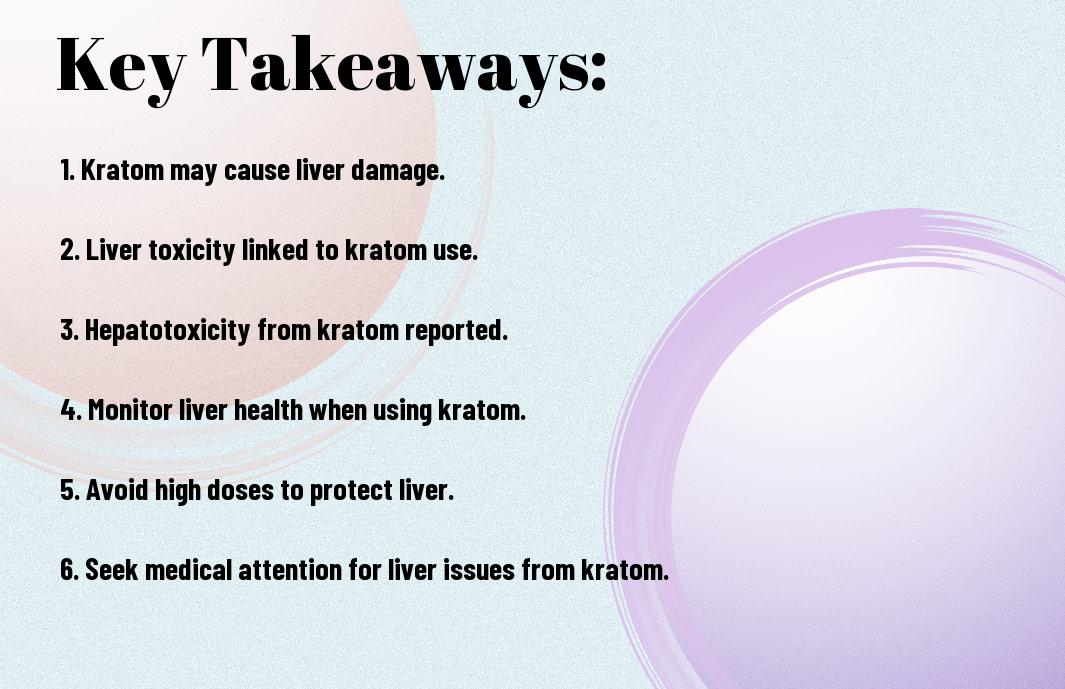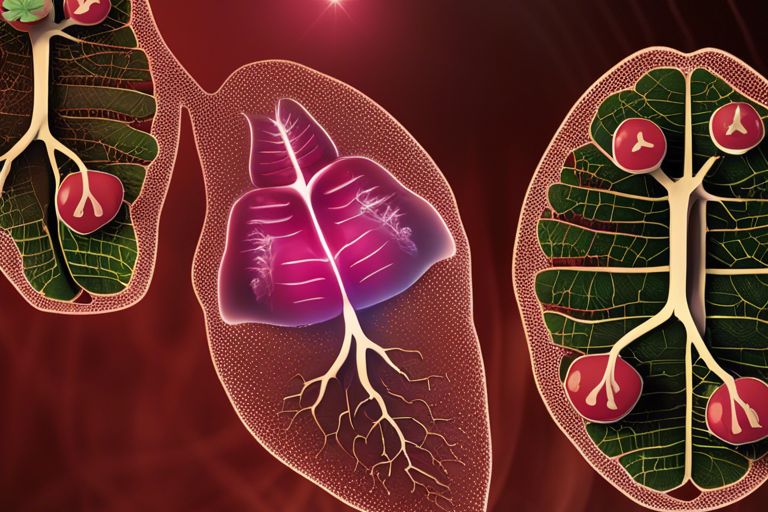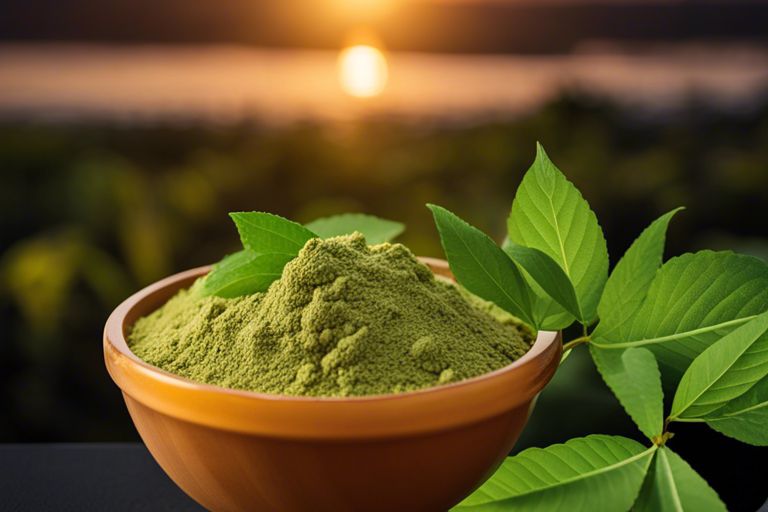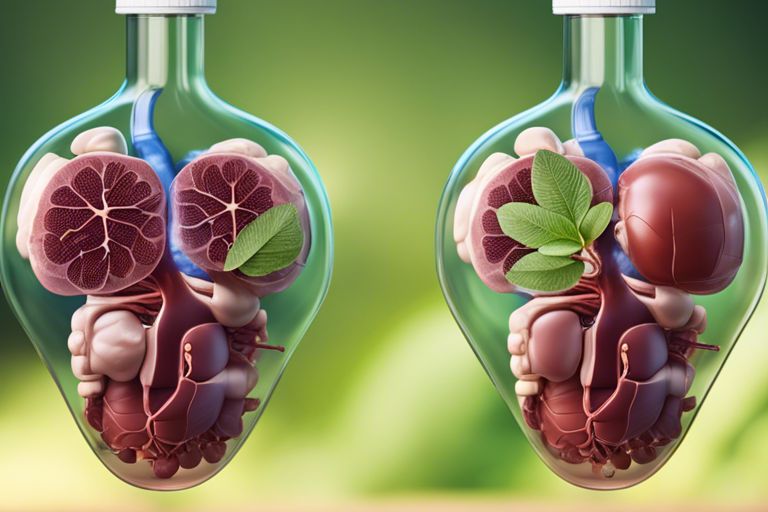Kratom, a natural herb derived from the leaves of the Mitragyna speciosa plant, has gained popularity in recent years for its medicinal properties. However, it is crucial to be aware of the potential side effects it may have on the liver. Understanding the impact of Kratom on this vital organ is vital for making informed decisions about its use.
Key Takeaways:
- Kratom can potentially have adverse effects on the liver: It is important to be aware of the risks associated with using kratom, as it may have harmful effects on liver function.
- Monitoring liver health is crucial when using kratom: Regular liver function tests and monitoring can help assess any potential damage caused by kratom consumption.
- Consult a healthcare professional before using kratom: It is advisable to seek medical advice before starting to use kratom to ensure that it is safe for you, especially if you have pre-existing liver conditions.

What is Kratom?
The use of kratom, a tropical tree native to Southeast Asia, has gained popularity in the United States as an alternative medicine for managing pain, anxiety, and enhancing mood. Kratom leaves contain active compounds that interact with opioid receptors in the brain.
Brief History and Origin
One of the first known uses of kratom dates back centuries in Southeast Asia, where it was traditionally chewed or brewed into tea for its stimulant effects. In recent years, it has gained popularity in Western countries for its perceived therapeutic benefits.
Chemical Composition and Mechanism of Action
For centuries, kratom has been known to contain alkaloids such as mitragynine and 7-hydroxymitragynine, which are responsible for its effects on the body. These alkaloids have a similar structure to opioids and can bind to opioid receptors in the brain, leading to pain relief and mood enhancement.
These compounds also interact with other neurotransmitter systems in the brain, such as serotonin and dopamine, contributing to kratom’s stimulant and antidepressant properties. However, the exact mechanisms of action of kratom are still not fully understood and require further research.
Origin
Kratom is derived from the leaves of the Mitragyna speciosa tree, primarily found in Southeast Asia. While it has been used for centuries in traditional medicine practices, its increasing popularity in the West has raised concerns about its potential side effects, particularly on the liver.
Liver Function and Health
Overview of Liver Functions
Liver function is crucial for maintaining overall health and well-being. The liver plays a vital role in various metabolic processes, including detoxification, nutrient metabolism, and synthesis of proteins needed for blood clotting and other functions. Additionally, the liver helps in storing vitamins, minerals, and glycogen for energy.
Importance of Liver Health
Functions performed by the liver are necessary for the body to function properly. Healthy liver function is crucial for filtering out toxins and waste products from the bloodstream, producing bile for digestion, and regulating blood sugar levels. When the liver is compromised, it can lead to serious health problems and impact overall well-being.
Regular screenings and maintaining a healthy lifestyle can help prevent liver disease and ensure proper liver function. It is important to be aware of factors that can affect liver health, such as excessive alcohol consumption, poor diet, certain medications, and underlying medical conditions.

Kratom’s Impact on Liver Health
For Kratom & Liver Damage: About Liver Toxicity & What to Do, it is crucial to understand Kratom’s potential effects on liver health. Anecdotal reports and research suggest that Kratom may have adverse effects on the liver. Both acute toxicity and long-term hepatic injury have been linked to Kratom use.
Potential Toxicity and Hepatotoxicity
Another aspect to consider is the potential for Kratom to cause hepatotoxicity, or liver damage. This risk is particularly concerning as the liver is responsible for metabolizing and detoxifying substances in the body. Some compounds in Kratom could potentially overwhelm the liver’s detoxification pathways, leading to liver damage.
Reported Cases of Liver Damage
Hepatotoxicity is a serious concern with Kratom use, although reported cases of liver damage directly linked to Kratom are rare. However, when liver injury does occur, it can be severe and even life-threatening. It is crucial for individuals using Kratom to monitor their liver function regularly and seek medical attention if any concerning symptoms develop.
Another important point to note is that while Kratom has been traditionally used for its medicinal properties, the potential for liver damage highlights the importance of responsible and informed use. Regular monitoring of liver function and seeking medical advice if any concerning symptoms arise is paramount for Kratom users.
Short-Term Side Effects on the Liver
Mild Reactions and Symptoms
Liver function tests are often used to monitor any changes that may occur due to kratom use. Some individuals may experience mild liver reactions, such as a slight increase in liver enzymes. These mild reactions are usually transient and resolve on their own once kratom consumption is stopped. It is crucial to consult with a healthcare provider if you notice any changes in liver function during kratom use.
Moderate Reactions and Symptoms
Liver moderate reactions to kratom can include more pronounced elevations in liver enzymes, indicating liver stress or inflammation. In some cases, individuals may experience symptoms such as abdominal discomfort, jaundice, or dark-colored urine. These moderate reactions are rare but require immediate medical attention to prevent further liver damage.
Symptoms of moderate liver reactions to kratom should not be ignored. Seeking prompt medical care is crucial to prevent long-term liver damage and ensure proper management of any potential complications. If you experience any of these symptoms, discontinue kratom use and consult a healthcare professional for further evaluation and guidance.
Long-Term Side Effects on the Liver
Chronic Liver Damage and Disease
Many individuals who use kratom over a long period may be at risk of developing chronic liver damage and related diseases.
Liver function tests may show abnormalities with prolonged kratom use, indicating potential liver damage. Continued use of kratom can lead to the development of conditions such as fatty liver disease, hepatitis, cirrhosis, and even liver cancer.
Increased Risk of Liver Failure
Effects on the liver from kratom can increase the risk of liver failure in some users.
When the liver is overburdened by metabolizing kratom compounds, it can lead to a breakdown in its functioning, potentially resulting in liver failure. Symptoms of liver failure include jaundice, abdominal pain, swelling, and confusion, indicating serious damage to this vital organ.
It is crucial to monitor liver function regularly if using kratom, as early detection of liver issues can help prevent further damage. If any signs of liver damage or failure manifest, it is imperative to stop kratom use immediately and seek medical attention.
What Are the Potential Side Effects of Kratom on the Liver?
Kratom’s impact on liver is a topic of concern for many. While more research is needed, some studies suggest that long-term and high-dose kratom use may lead to liver damage. Potential side effects include jaundice, dark urine, and abdominal pain. It is important to use kratom responsibly and be aware of these potential risks.
Factors Influencing Kratom’s Effects on the Liver
Now, let’s explore into some of the key factors that can influence how kratom affects the liver:
Dosage and Frequency of Use
For individuals consuming kratom, the dosage and frequency of use play a significant role in the impact on the liver. Higher doses or frequent use of kratom may put more strain on the liver as it works to metabolize the compounds in the herb. It is crucial to follow recommended dosages and avoid excessive consumption to reduce the risk of liver damage.
After carefully monitoring your kratom intake, it’s important to also pay attention to how your body responds to the herb, particularly in relation to your liver function. Indicators such as changes in appetite, fatigue, or jaundice can signal potential issues that require immediate medical attention.
Individual Tolerance and Sensitivity
Individual tolerance and sensitivity to kratom can vary significantly from person to person. Factors such as genetics, overall health, and metabolism can influence how the liver processes kratom compounds. Some individuals may be more susceptible to liver damage even at lower doses, while others may tolerate higher amounts without complications.
Interactions with Other Substances
For those using kratom alongside other substances, it’s important to be aware of potential interactions that could impact liver function. Combining kratom with alcohol, prescription medications, or other drugs can place additional stress on the liver and may increase the risk of adverse effects. It is advisable to consult with a healthcare provider before using kratom in conjunction with other substances.
Liver health is paramount, and understanding these key factors can help individuals make informed decisions about kratom use and minimize the potential risks to the liver. Bear in mind, always prioritize your well-being and consult with a medical professional if you have any concerns about how kratom may be impacting your liver.
To wrap up
The dangers and risk factors of Kratom liver toxicity are crucial to understand to make informed decisions about its use. The informative article “Kratom Side Effects Liver” sheds light on the potential harm that Kratom can pose to this vital organ. It is crucial to be aware of these risks and prioritize liver health when considering Kratom as a supplement or alternative therapy. For more in-depth information on the dangers and risk factors of Kratom liver toxicity, you can refer to Dangers and Risk Factors of Kratom Liver Toxicity.
FAQ
Q: What is Kratom?
A: Kratom is a tropical tree native to Southeast Asia. Its leaves are commonly used for their medicinal and recreational properties.
Q: Can Kratom have side effects on the liver?
A: Yes, Kratom has been associated with potential liver side effects, although they are rare. It is important to be aware of these risks.
Q: What are the possible side effects of Kratom on the liver?
A: Potential side effects of Kratom on the liver include hepatitis, cholestasis, and liver damage. These effects are typically seen in individuals who consume high doses or use Kratom regularly.
Q: How does Kratom affect the liver?
A: The exact mechanisms by which Kratom affects the liver are not fully understood. However, it is believed that certain compounds in Kratom may be metabolized by the liver, leading to potential damage over time.
Q: How can I minimize the risk of liver side effects from Kratom?
A: To minimize the risk of liver side effects, it is advisable to use Kratom in moderation and follow recommended dosages. It is also important to buy Kratom from reputable sources to ensure purity and quality.










